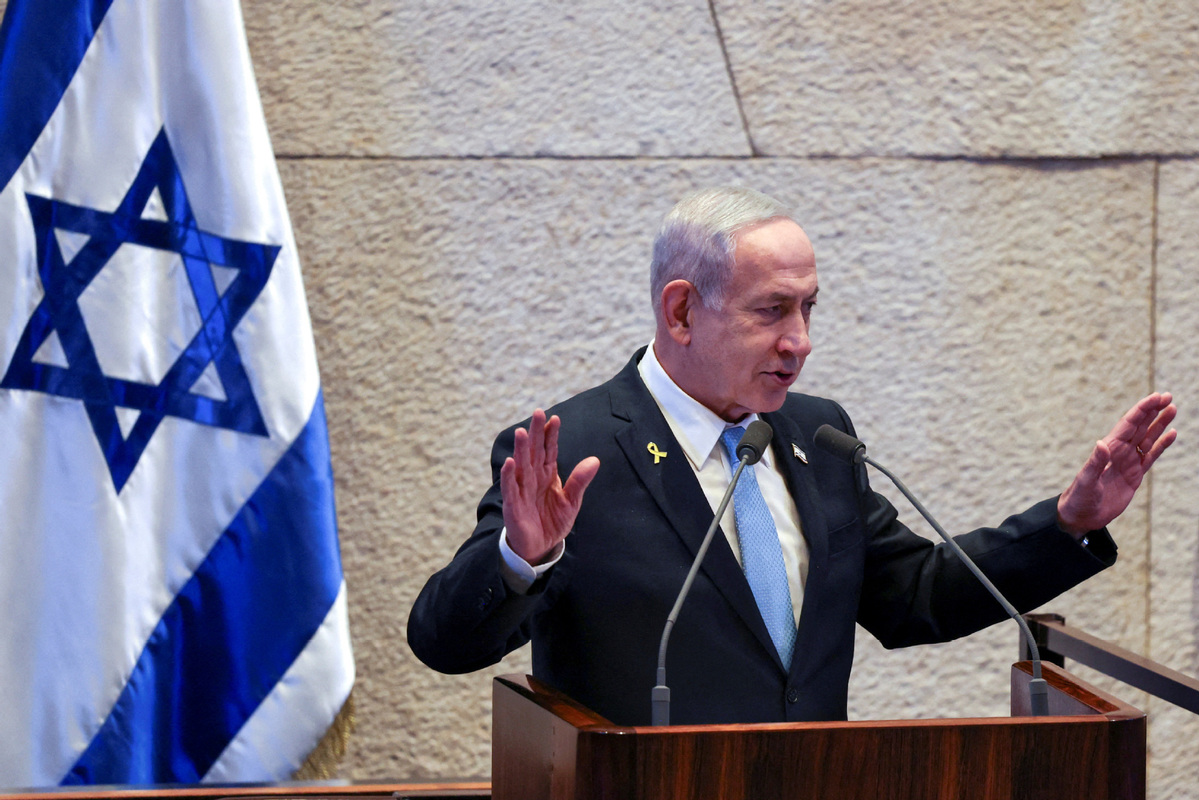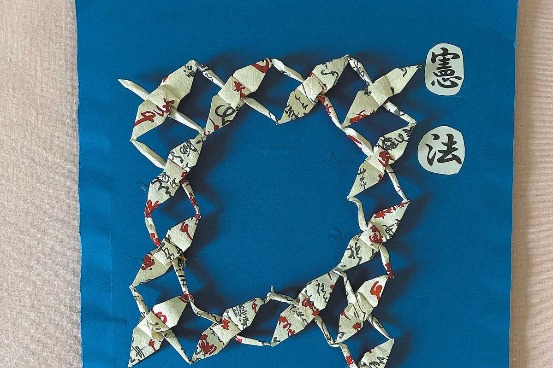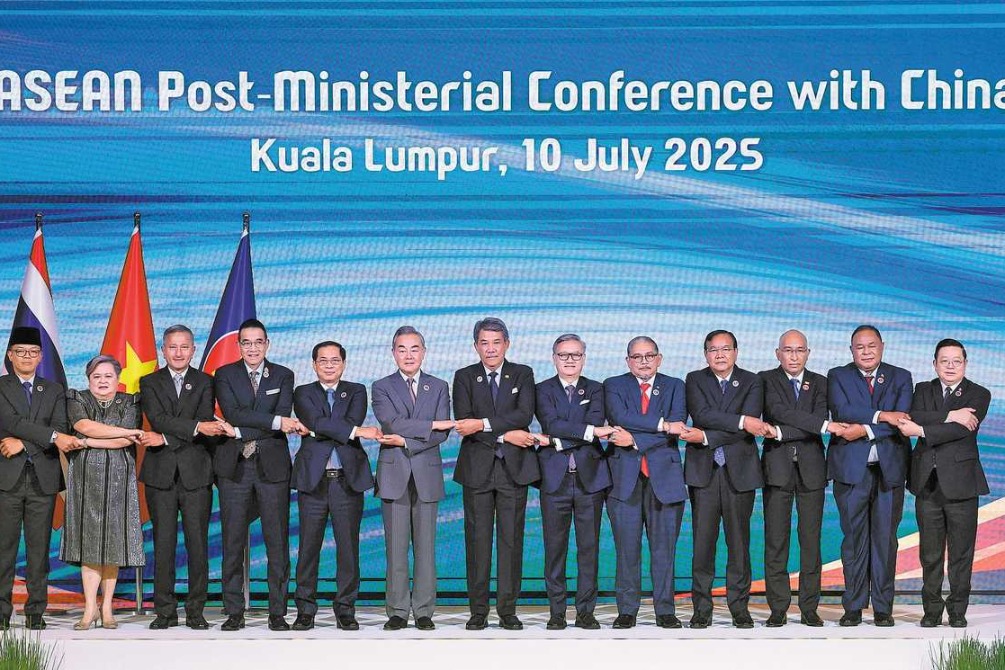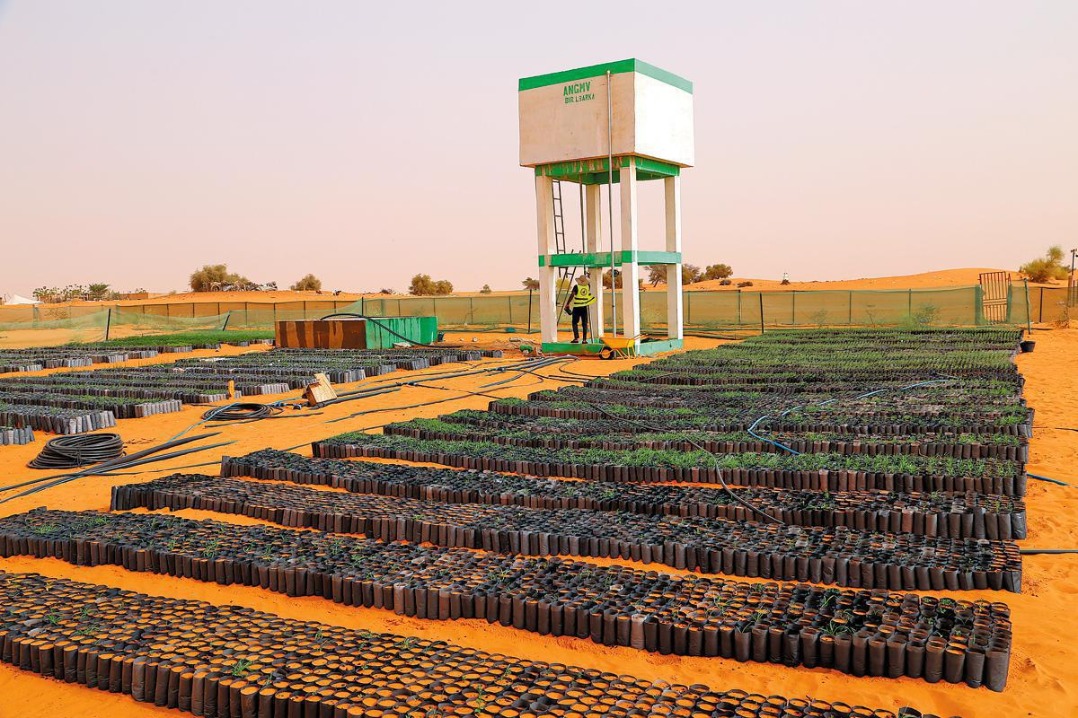Israel sets conditions for permanent ceasefire negotiations


Israeli Prime Minister Benjamin Netanyahu said Israel stands ready to enter into negotiations on a permanent ceasefire during a 60-day truce in Gaza, provided that Hamas surrendered its arms and governing capabilities.
Speaking in a video recorded message in Hebrew – later translated to English by his office – during what he termed "the final day of a historic visit that followed a historic victory in the war against Iran", Netanyahu said they were "determined to bring back everyone" after meeting with the families of hostages whom he invited, including families of both living and deceased hostages.
"I told them we are now attempting to achieve a release of half of the living and deceased hostages, in return for a temporary ceasefire of 60 days. In the beginning of that ceasefire we will enter negotiations on a permanent end to the war, that is, a permanent ceasefire," said Netanyahu.
"In order for us to achieve that, this has to be done on the minimal conditions that we've set: Hamas lays down its arms, Gaza is demilitarized, and there are no longer any governing or military capabilities of Hamas. These are our fundamental conditions," he stressed.
He said it was "so much better" if this could be achieved in negotiations.
"If this will not be achieved in negotiations after 60 days, we will achieve it in other ways; by applying the might of our heroic army," said Netanyahu.
He also addressed ongoing concerns and defended the Israel Defense Forces for facing a battleground that "no army in the world has ever faced", saying there were still "thousands of armed militants".
"And we wish to act, once again, by combining diplomacy with military force, and using military force if diplomacy doesn't get the job done, in order to complete the mission," said Netanyahu.
He highlighted that they have had to contend with an American embargo, such as "do not enter Rafah", "do not conquer the Philadelphi Corridor", which he called are "not simple matters".
He said during the past several months, while Israel was "preparing and eventually carried out perhaps the most daring military operation in our history", at the same time "we kept advancing in the Gaza Strip and retrieving deceased hostages".
He said they "were doing it in parallel, not pushing it aside even for a moment".
"We've been told, 'you will not return to the war', after the first ceasefire agreement— and we did return. We've been told, 'you will not resume your fight', after the second ceasefire — and we did. Now they're saying 'you will not continue fighting', after the third ceasefire. Do I need to say more?" Netanyahu said.
"I believe we have demonstrated our resolve, our might and our commitment to achieving all of our goals," stressed the Israeli Prime Minister.
On the question of who will determine the order of hostages' release, Netanyahu said "first of all, let there be hostages who are being released".
"But to this day…we're dealing with a brutal terrorist organization. We, of course, would like to rescue everyone, and as far as we're concerned, all of the hostages are humanitarian cases. I wish to rescue everyone all at once," said Netanyahu.
"Here, we are dealing with two stages, but the choice isn't always in our hands. We will do everything to maximize this release in the best way possible, but not everything is up to us," he added.
Israeli strikes across Gaza have killed at least 82 people since the dawn of July 10, according to Gaza's Health Ministry amid ongoing ceasefire negotiations in Doha and criticism of plans to forcibly transfer Palestinians to Rafah
Those killed included nine children and four women, who were killed in an Israeli air attack while waiting in line for nutritional supplies for children in Deir el-Balah, central Gaza.
In a statement on July 10, UNICEF Executive Director Catherine Russell said they are appalled by the reported killing of 15 Palestinians. An additional 30 people were reportedly injured, including 19 children.
"This assistance was being provided by Project Hope, a UNICEF partner organization, to families in desperate need. The killing of families trying to access life-saving aid is unconscionable," said Russell.
She said the lack of aid means children are facing starvation while the risk of famine grows. The number of malnourished children would continue to rise until life-saving aid and services are resumed at full scale.
"International law is clear: all parties to the conflict have an obligation to protect civilians and ensure the safe and unimpeded delivery of humanitarian assistance," said Russell.
"We call on Israel to urgently review its rules of engagement to ensure full compliance with international humanitarian law, notably the protection of civilians, including children, and to conduct a thorough and independent investigation of this incident and all allegations of violations," said the UNICEF executive director.
"UNICEF again calls for an immediate and lasting ceasefire, the release of hostages, and for all parties to protect civilians, including children and humanitarian workers. Food, water, as well as nutrition and medical supplies, must reach children safely and without delay. The deaths and suffering of children and civilians must end," Russell added.
































